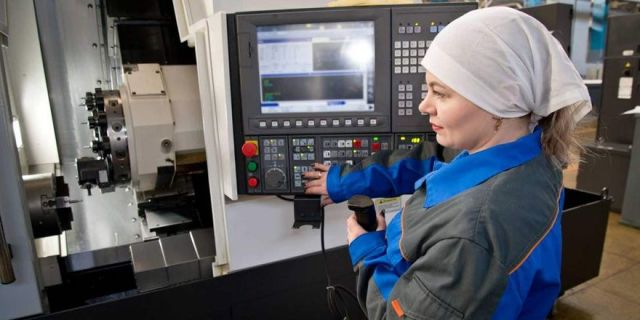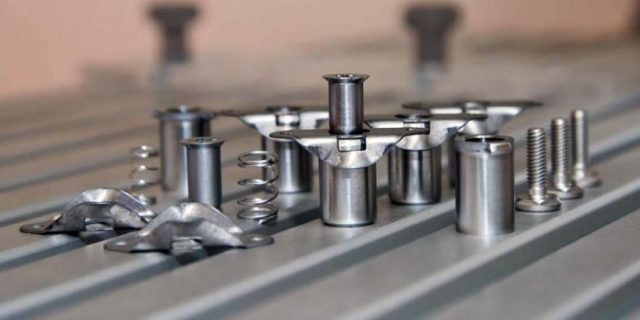After the start of Russia's special operation in Ukraine, the EU authorities banned the supply of components and spare parts to Russia for the civil aviation industry, primarily for MS-21 aircraft. In this regard, Irkut Corporation has encountered difficulties in fasteners for a new medium-haul liner. JSC "PO Strela" (Orenburg) was proposed to develop and manufacture multi-resource power locks for the MS-21.
Locks are used for fastening removable elements of the fuselage, wing and tail (covers and hatches), as well as for fastening internal removable elements of on-board structures. "The factory workers have fully fulfilled the customer's requirements," the Orenburg regional branch of the Union of Machine Builders of Russia reported.
The samples of the imported lock provided by Irkut Corporation passed a comprehensive assessment in Orenburg. Metallography was performed, the parameters of the parts that ensure the locking of the structure and its characteristic clicks were determined, the thread features were studied. Based on the analysis, the department of the chief designer designed the elements of the components of the lock and the technical requirements for its manufacture at the facilities of the Strela software. The lock itself is a simple structure and consists of six parts (pictured): the hull, two screws, bushings, clips and springs, but this is an important detail in the design of the liner – more than 2000 different locks are needed on the plane.
"The specialists of the association had to solve three technological problems and all of them are more or less related to the small dimensions of the lock (the height of the case is only 16 mm). The requirements for strength and accuracy dictated their conditions in the conditions of a large "series" – more than 2000 locks of different sizes are installed on one aircraft alone," the company said.
One of the problems encountered in Orenburg is the manufacture of a coupling screw with an internal four–way thread, which is necessary for the convenience and speed of screwing.
"In the process of engineering search, the technologists of the association switched from mechanical, turning processing of a multi–pass thread to its formation with a special tool - a chipless tap by the method of plastic deformation. This kind of technology has not been used at the enterprise before. Its use provides higher strength characteristics and increases the service life of the part," said the representative of Strela.
The development of this technology has also given an economic effect – when machining with one cutter before it wears out, about 20 tie screws with a multi–threaded thread can be made, and when "squeezing" with a chipless tap - about 60. In addition, threading took about 15 minutes, and the tap thread formation cycle took thirty–six seconds.
Another task solved by factory technologists is the serial stamping of movable and fixed washers with teeth, the height of which is about 0.3 mm. During operation, it is the washers that produce clicks when unscrewing-twisting, and the lock must withstand such cycles more than 1500 times. The "ratchet" is a kind of marker of the reliability of the lock: if the sound disappears, then the case needs to be replaced. But their main function is to prevent the involuntary unwinding of the tie screw due to vibration during the flight of the aircraft. In order to achieve the desired quality of the "ratchet" and avoid premature wear of the washers, the designers of the association selected the material and the total force of two special springs.
 |
| JSC "PO "Strela". |
| Source: JSC "PO "Strela" |
The "bottleneck" in the development of locks was also the manufacture of a locking ring for the sleeve, which is mounted in an element of the aircraft frame. The lock design ensures that the coupling screw engages the locking ring and prevents the screw from falling out during routine maintenance. "Initially, engineers planned to make it with a stamp – "cut down" from a metal tape, but later another method was chosen – a ring with a thickness of 0.5 mm is made of carbonized wire with higher spring properties, and then processed mechanically inside," the company said.
After the production of an experimental batch of locks, successful tests were carried out at the Irkutsk Aviation Plant on simulators of parts of the fuselage of the MS-21 aircraft. Locks manufactured by Strela software passed all the necessary checks and testing and were included in the design documentation of the MS-21 aircraft as components classified according to Federal Aviation Regulations as Class III components Category B. Currently, a special site for the production and assembly of locks is being created at the association.



